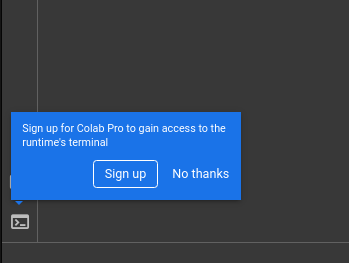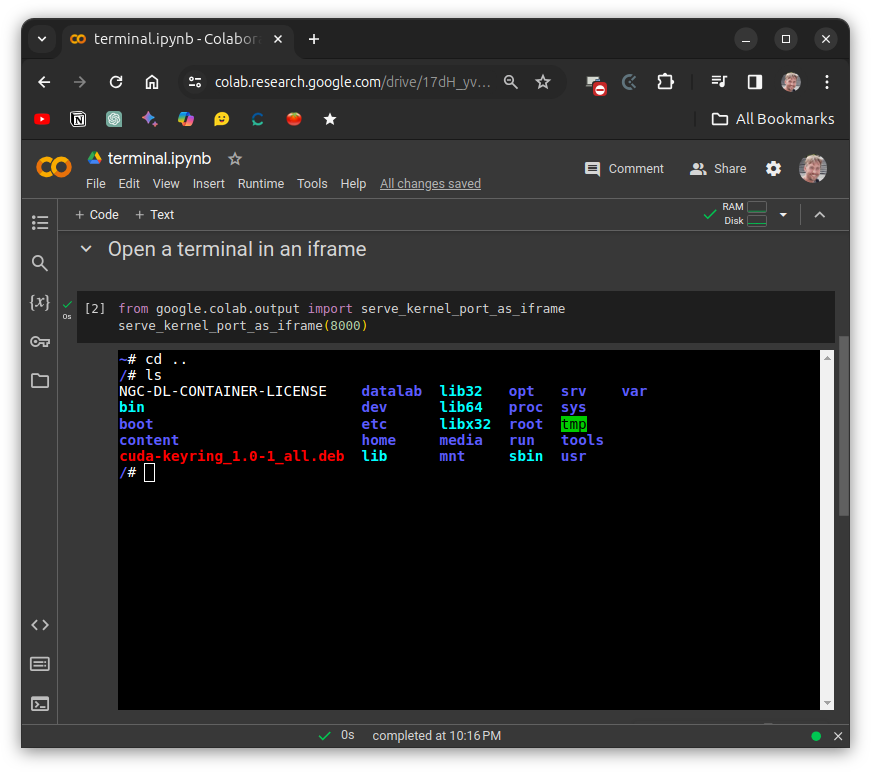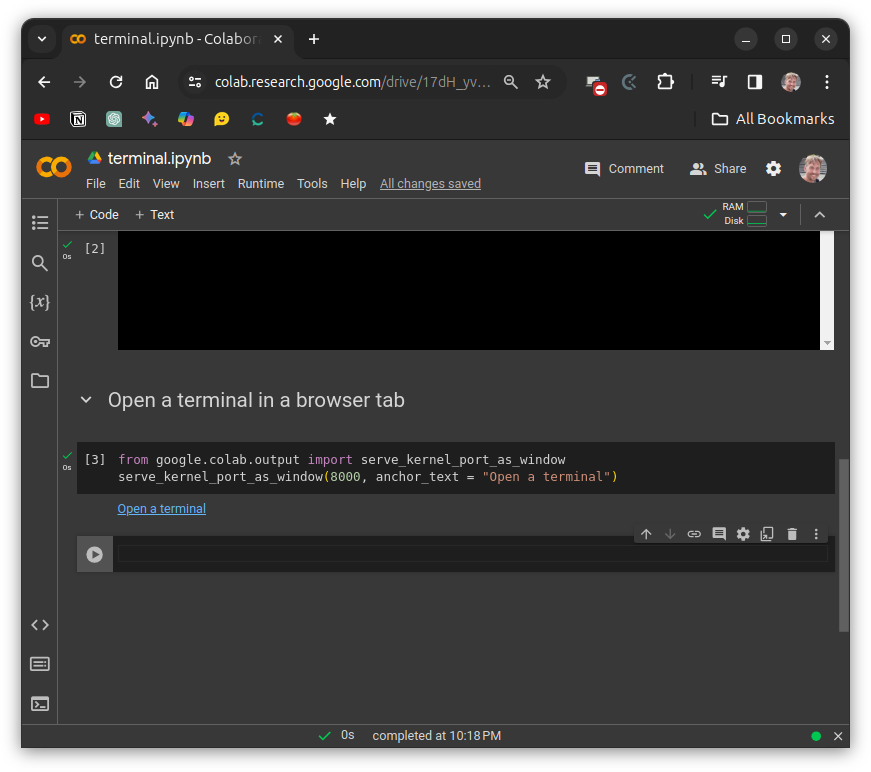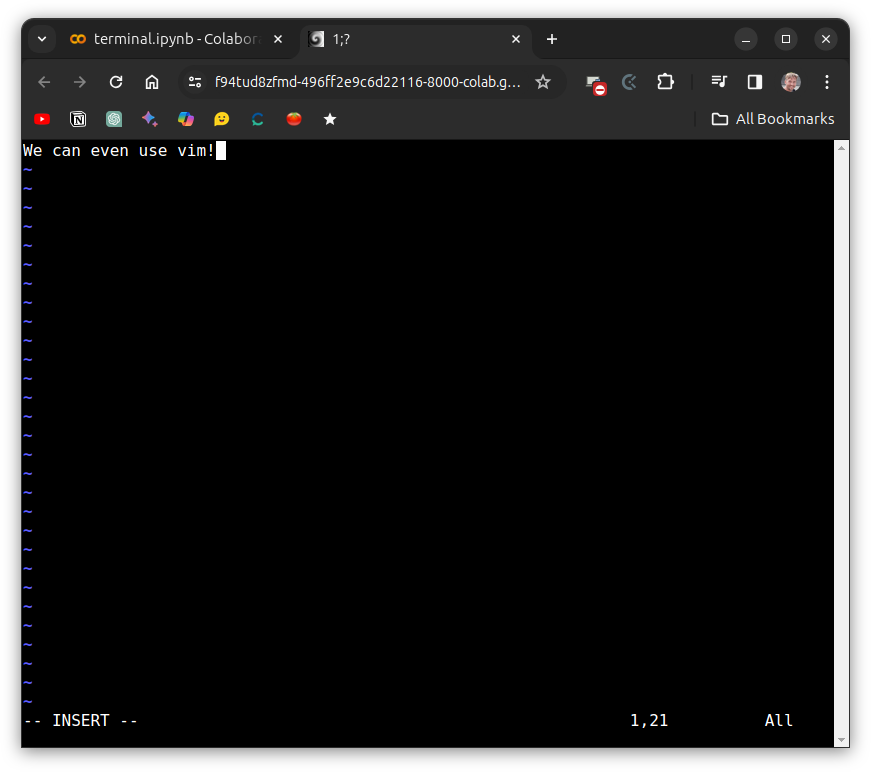Google Colab is an awesome service that lets you run Jupyter Notebooks in the cloud. There’s a free version and some paid plans. Even with the free version, you get some serious compute and can use hardware like GPUs or TPUs.
In Jupyter Notebook environments, like Colab, executing shell commands is straightforward. For example, to list the contents of a directory, you can simply type !ls in a code cell and execute it.
While this is fine for short shell commands, there are instances where a full shell environment is more convenient.
A solution for people who don’t mind spending some money
In the bottom left of the Colab interface you can click an icon that should open a terminal to the container running the Colab instance.

Sadly, this only works on a paid plan.
A solution for cheapskates frugal people
The solution I came up with is to install and run Shell in a Box. This tool lets you use command line tools like Bash in a web-based terminal emulator, which you can open in a notebook cell or a separate browser tab.
Setting it up
Setting this up is a breeze. First, install and run Shell in a Box. Then, make sure you’ve got access to a standard server environment by running unminimize.
!apt install shellinabox &> /dev/null
!nohup shellinaboxd --disable-ssl --no-beep --port=8000 --css /etc/shellinabox/options-enabled/00_White\ On\ Black.css -s "/:root:root:/root:/bin/bash -c bash -i" &> /dev/null &
!yes | /usr/local/sbin/unminimize &> /dev/nullRunning unminimize is optional and could be done at a later time as well. Some things, like man pages, won’t work on a minimized system. For this reason, I like to run it right away for full functionality.
Opening a terminal in an iframe
To access the terminal within the notebook, run the following code.
from google.colab.output import serve_kernel_port_as_iframe
serve_kernel_port_as_iframe(8000)It’ll open up a terminal right within the cell’s output.

The serve_kernel_port_as_iframe function lets you customize the dimensions of the iframe by providing arguments like width and height.
Opening a terminal in a seperate tab
If you prefer a separate tab for your terminal, run the following code snippet:
from google.colab.output import serve_kernel_port_as_window
serve_kernel_port_as_window(8000, anchor_text = "Open a terminal")It’ll give you a link to click.

Clicking this link will open a terminal in a new browser window.

Each time you click the link, a fresh tab (and terminal) pops up.
Some remarks
Here are some things to remember:
- If you don’t do anything in the notebook, it will timeout. If it does, you’ll need to restart it and reinstall and rerun Shell in a Box. The free plan gives you up to 12 hours of runtime.
- You can access your files through a shell by mounting your Google Drive. Colab will put your Google Drive under
/content/drive/MyDrive. - Some activities are off-limits on Google Colab. No mining cryptocurrencies or using it for file hosting. It’s handy to have shell access, but it’s not a free Linux box in the cloud. Check the FAQ to see what’s allowed.
Want to give it a go?
Use this link to try it out.